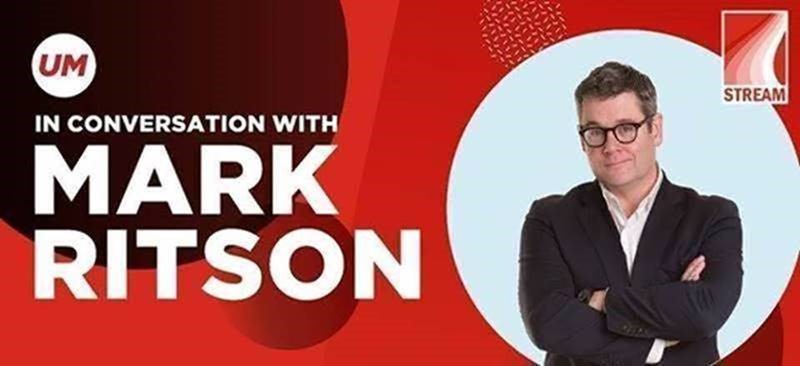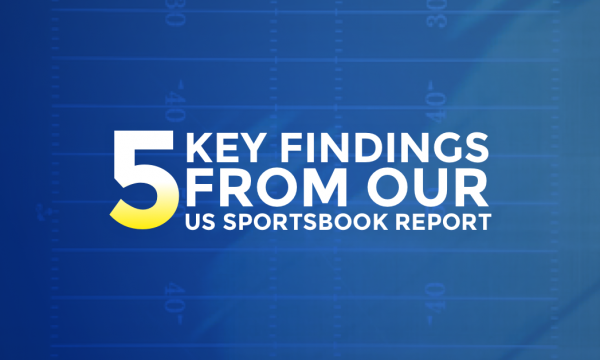“I asked a CEO ‘Why they fired this incredible marketer?’” The answer? “Because they stopped scaring me.”
That anecdote came from Mark Ritson as he presented, in his own no-holds-barred style, to the team at IPG Mediabrands about what brands need to be doing to navigate their way through not just the COVID-19 pandemic, but the difficulties that will follow.
That exchange revealed perhaps the biggest challenge facing many marketers, particular in times of public crisis or recession where the emphasis of many brands tends to switch from big-brand ideas to much more conservative, short-term results focused strategy.

The importance of differentiation is a drum that the conference-headliner has often banged with enthusiasm, but it remains one of the industry’s biggest challenges.
“People don’t care what brands think of COVID”, he argued. "I don’t care what [online food ordering] brands thinks about COVID. What I do care about is what they’ve got on the menu at lunchtime”.
The comments were a jab at the sort of marketing communications that seemed to come out from brands as the world went into lockdown. We saw brands deploy almost identical styles of advertising and brand messaging, all emailing customers to show how they were “here for you in this difficult time”.
The over-riding message that Ritson wanted to stress was that times of economic downturn needn’t change a marketing approach, pointing out that “if an ad was good in January, it’s good in COVID, so keep it rolling”. Whilst some of the tactics may inevitably change during a downturn, brands still needed to do things that were daring, different, boundary-pushing and, perhaps above all else, had the potential to cause a bit of a stir.
That is not to say that brands should seek out controversy or offence, but more that the cost of that offence, if it does materialise, is often overblown.
One such example was, as he described it, the “Peloton nonsense”, of Christmas 2019, which saw the brand roundly criticised following the release of one particular ad campaign. Amongst that criticism came predictions of the damage that the campaign would do to the brand long term yet Ritson urged people to look at the actual results, which show that Peloton had been “smashing it” over that Christmas period.
An emotional Christmas
On the topic of Christmas, Ritson claimed that this year is going to be an emotional one for a lot of people and he hoped that marketers will reflect that, without falling into the same trap as every other brand at the same time.
“This is going to be an emotional Christmas for consumers”, he suggested. “For a lot of people, having the family around the dinner table is going to be so much more important than usual.”
The challenge for marketers and creatives, he argued, is to harness that emotion in a way that’s tasteful. Where brands like John Lewis & Partners have in many respects created their own niche of Christmas marketing that many others have tried to follow, it will be quite a fine line that brands have to tread to maintain that balance of taste and emotion.
It will pay to keep marketing
Ritson did show sympathy with the marketing industry when it came to COVID, given that it is like nothing that we have ever dealt with before and as a result, there was no rule book. Different brands had their businesses affected in very different ways
But as COVID subsides and economies around the world deal with recessions of differing severity, things change.
“What will follow COVID is a recession, and we know what to do in recessions”, he argued. “We’ve been through recessions before”.
“What we do in recessions is keep marketing,” he added. “All of the data shows that you should keep up spending during a recession”.
Brands that kept up spending historically emerge from recessions in a better place than their competitors that cut spending, whilst products that are launched during recessions have a history of better commercial performance than those launched during more favourable economic periods.
But he stressed that marketing can’t simply be focused on the short-term – and that is often the biggest danger in a recession where scrutiny of marketing spend from the boardroom and the finance departments is often much more intense than usual.
Referencing the recent article from Tom Roach, The Wrong and the short of it, Ritson argued that marketers cannot simply see their strategy as a choice between short-term and long-term activity, or brand marketing and performance marketing. Nor should they approach the two as a separate activity running in parallel. Instead, they should deploy both in tandem to enjoy the “compound” impact of both forms of marketing working together.
“TikTok is made for advertising”
So what does the future hold? Well, a marketing channel that appeared to cause real excitement was something of a surprise, with Ritson claiming that TikTok is the opportunity that really should excite marketers.
“TikTok is made for advertising”, he claimed, adding that it offers “unmissable, wow-factor media”. He went on to suggest that it was the platform’s “potency” that was a major factor in the attempts of US regulators to restrict the app.
But podcasts were also something that caught his attention, particularly for “boring old farts like me”. He argued that the portability of the format, allowing consumers to listen to content almost anywhere, made it such a powerful platform if brands could get their creative right.
Ritson was, however, less optimistic about the prospects for cinema. Despite cinema being a medium that tends to hold up well in recessions, the medium is caught in the cross-fire of film makers holding off big releases whilst audience numbers remain restricted and the prospect of film distributors shifting towards direct-access models such as home-streaming.
Talk about marketing, not marketers
A final takeaway point was that it was important for marketers to spend more time actually thinking about marketing, rather than worrying about what other marketers were talking about.
Whilst touching on his “friendly rivalry” with Byron Sharp and their differing views on certain aspects, he made the point that too many markets seem to have an unhealthy obsession with what other marketers say and do.
“If you go to a plumbing convention, you don’t get people going onto a stage to talk about other plumbers. They talk about taps”, he claimed. “So why is it that people go to marketing conferences and talk about marketers?”
If marketers focused on their actual marketing, he suggests, not only would we be in a better position to tackle the challenges that we’re also going to face, but there would be the added benefit for all of us that “there would be much less w*** in the market”.


